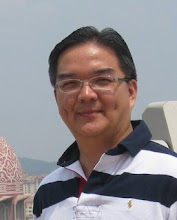
Here is a story that I would like to share. It is fairly common story and incredibly valid in today's world.
A man and his wife owned a very special goose. Every day the goose would lay a golden egg, which made the couple very rich.
"Just think," said the man's wife, "If we could have all the golden eggs that are inside the goose, we could be richer much faster."
"You're right," said her husband, "We wouldn't have to wait for the goose to lay her egg every day."
So, the couple killed the goose and cut her open, only to find that she was just like every other goose. She had no golden eggs inside of her at all, and they had no more golden eggs.
Moral: Let's not kill the goose who has been the source of the golden egg.
source: http://www.storyit.com/Classics/Stories/goldengooseegg.htm

















